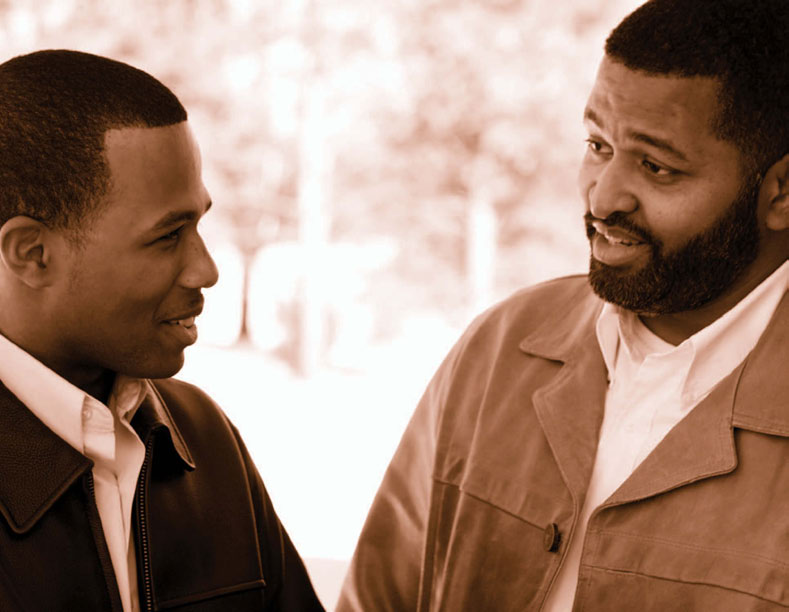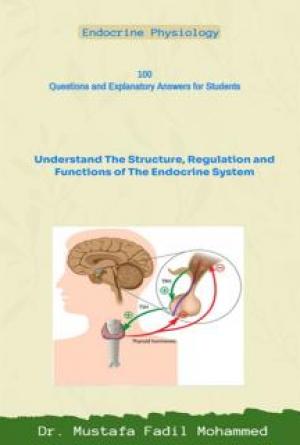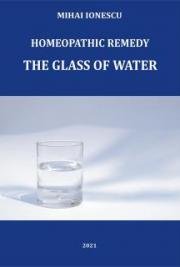Where would you look? And for
❯
Before talking with your child,
that give you a bad feeling, you
what? Well, drugs are easily hidden in
practice the conversation until
should follow your instincts. And
drawers, backpacks, the back of closets,
you are sure you can remain calm.
don’t accept sullen silence as an
the corners of bed sheets, small boxes,
Also, don’t initiate the conversa-
answer—make sure the conversa-
books or bookcases, makeup cases,
tion unless you’re sure your child
tion occurs.
over-the-counter medicine bottles,
is sober or has not been using
❯ School goes downhill. Declining
and under the mattresses or beds. You
drugs, which may mean waiting
grades can be a stark indicator
might also find drug paraphernalia
until the next day.
38
U.S. Dr
U
U
.S. Dr g Enf
U
orc
g Enf
E
orc mE
m nt ADmini
D
S
mini tr
S
Ation • U
A
.S. D
tion • U
E
.S. D p
E A
p r
A tm
r
Ent of EDU
nt of E
cA
c tion
A

WHAT iF i WHA
THinT SUBS
K MY cTA
H nce
ilD i S Do
S US Ki
ing DS US
DrU e
g ?
S
❯
What do you say? Begin by voic-
MeeT gArreTT HArneY
ing your suspicions without mak-
Cindy Harney beams with pride as she speaks about her son Garrett.
ing accusations. “Susan, I suspect
you may be smoking pot occasionally.
“Garrett loved to play the piano. He loved all kinds of sports—he wake
I love you and I’m concerned about
boarded, skate boarded, and played in Little League. He also cared about
you. Is there something going on that
the community. He loved 4-H and was on the board of a local organization
we need to talk about?”
for children with learning disabilities. everyone here knew him by his F-150
pickup. But after a friend shared his mother’s pain medicine, Garrett’s life
❯ Be prepared emotionally for
was never the same. nor was ours.”
possible reactions. Your child may
Garrett died at the age of 20 from a prescription drug overdose of
accuse you of snooping. Your
oxycodone and Xanax. in addition to his parents, Garrett left behind a sister child may tell you that you’re
just 16 months younger than he was—a sister who now has no sibling with
crazy or call you a hypocrite
whom to share her life experiences.
(especially if you smoke or
occasionally have a drink). Your
“there isn’t a day goes by that i don’t think of my boy,” says Cindy. “i told him about all the illicit drugs, but i never told him about legal drugs. no
child may express hatred and
parent should ever have to pick out the casket for their child or the clothes threaten to leave home.
he will wear to be buried in.”
❯
Whatever the response, make your
determined not to let her son die in vain, Cindy now shares her horrific
mind up ahead of time to remain
experience to help educate others—parents, youths, law enforcement, the
calm. Even if your child denies
medical community, and lawmakers—about the dangers of prescription drug
there is a problem (which will
abuse in hopes of enacting change.
probably happen), reinforce what
“After Garrett’s death, i learned that many kids in my Florida community
you believe about drugs and how
were dying because of prescription drugs, and i knew i had to do something.
much you care about your child.
i met a woman whose 18-year-old son had taken his life and asked her if she
“I want to believe you, sweetheart,
would join me in the fight against drug abuse. we traveled to Kentucky to
because there is a lot of evidence that
learn about its prescription drug monitoring program, and then we went to
young people who use drugs are at
tallahassee in hopes of getting a similar program in Florida.”
risk for many bad things. I’d be very
Cindy and her new acquaintance also founded Families Against Addictive
disappointed if you didn’t finish
drug Abuse to create awareness of the problem and to enact change. she
school or if someone took advantage of
played a role in the creation of a prescription drug task force in her local you sexually while you were high.”
sheriff’s department and in the development of operation Medicine Cabinet,
❯
Having this type of calm, open dis-
a countywide project to take back old medicine. she also speaks at local,
cussion at least lets your children
regional, and national events.
know you care and that you still
“we’re losing approximately 10 Floridians a day, and that’s more than by all love them. Follow up by being a
illegal drugs combined. we must take action so no other family has to suffer parent. “And remember, we had a deal
the loss that we have. Hopefully, through education and by working together
that no member of this family would
as a community, we’ll be able to educate our little ones so they never fall
use drugs.” Enforce whatever dis-
into this epidemic.”
cipline you agreed on for breaking
Currently, Cindy Harney
the rules (if that is the case).
is working with Florida
Congressman vernon
❯
During this conversation, it’s very
Buchanan’s office to get
important for your child to feel
support for the Pill Mill
supported, so continue to remind
Crackdown Bill (H.r. 1065)
your child that you’re always
to increase penalties for
there for guidance, especially
the operators of pill mills.
during a stressful time when your
(A pill mill is a facility
child may be tempted to use. Ex-
that violates federal or
press your love, care, and concern
state laws that pertain to
to your child—both in your words
prescribing and dispensing
and in your tone. “Sweetheart, I
controlled substances.)
Garrett Harney and his sister
Growin
Gro
G
win uP
uP d
ru
d
G Free: A P
A A
P rent’s Guide t
A
o Prevention
rent’s Guide t
39

sECtION 5
want to discuss this because I love
that is characterized by compulsive
and care about you, and I want you to drug seeking and use, despite harmful be healthy, safe, and successful.”
consequences. It is considered a brain
disease because drugs change the
A word of caution. It’s human nature
brain—they change its structure and
to want to believe your children when
how it works. These brain changes
they say they aren’t using drugs. They
can be long lasting and can lead to the
may say they are stashing a pipe for
harmful behaviors seen in people who
someone else or tired because of extra
abuse drugs.”
schoolwork, or they may provide any
number of excuses that sound rational. The good news is that addiction is a But if your suspicions are strong—
treatable disease, but the success of
and especially if you are faced with
any treatment approach depends on a
hard evidence—do not pretend that
variety of factors, including a child’s
everything is fine. It obviously isn’t.
temperament and willingness to
Also, do not blame yourself. Drug
change. It may take several attempts
abuse occurs in all kinds of families.
before a child remains drug free, so do
not give up hope. You are not alone!
If the conversation becomes heated or
out of control, don’t continue. Assure
FinDing TreATMenT
your child you love him or her and
When your child is referred for treat-
end the discussion peacefully. You’ve
ment, it’s important to find a program
at least taken a big step, and you can
best suited to your child’s needs.
always try again another day.
❯
Your first step in this journey is to
If your child flatly refuses to talk
find a certified drug and alcohol
to you about it, ask for help from a
counselor. To do that, consult your
school guidance counselor, family
child’s doctor, other parents whose
physician, or a local drug treatment
children have been treated for drug
referral and assessment center. Your
abuse, the local hospital, a school
child’s school may even have a
social worker, the school district’s
counselor qualified to evaluate your
substance abuse coordinator, or the
child and refer you to a particular
county mental health society.
agency for treatment.
❯
Or, you may call the U.S.
ADDicTion
Department of Health and
No one plans to become addicted.
Human Services Substance Abuse
Instead, it begins with a single use,
and Mental Health Services
which can lead to abuse, which
Administration (SAMHSA) toll-
can lead to addiction—a disease in
free at 1-800-662-HELP (4357) for
which a person craves the drug (or
alcohol and drug information
alcohol or nicotine) regardless of the
and treatment referral assistance.
consequences. Remember, however,
When you call this toll-free num-
that children with more risk factors
ber, a recorded message gives you
may be more susceptible to using and
the option to speak to a represen-
becoming addicted.
tative concerning substance abuse
treatment, or to request printed
For many years, society believed
material on alcohol or drugs.
that people addicted to drugs lacked
willpower or were morally flawed.
❯
Online, parents can go to the
Today, the National Institute on Drug
Partnership At Drugfree.org
Abuse (NIDA) defines addiction as
(www.drugfree.org), a nonprofit
“a chronic, relapsing brain disease
organization that helps parents
40
U.S. Dr
U
U
.S. Dr g Enf
U
orc
g Enf
E
orc mE
m nt ADmini
D
S
mini tr
S
Ation • U
A
.S. D
tion • U
E
.S. D p
E A
p r
A tm
r
E
tm nt of EDU
nt of E
cA
c tion
A

WHAT iF i WHA
THinT SUBS
K MY cTA
H nce
ilD i S Do
S US Ki
ing DS US
DrU e
g ?
S
and caregivers prevent, intervene
Some recovery services already exist
Don’t be surprised if—somewhere
in, and find treatment for drug
within the education community,
during the process of getting
and alcohol use by their children.
including recovery schools. Recovery
treatment for your child—a
high schools provide a service-
suggestion is made that the entire
❯
At www.findtreatment.samhsa.
gov, you’ll find more than 11,000
enriched and supportive school
family get counseling, too. Treating
addiction treatment programs,
environment for students recovering
addiction isn’t simply about healing
including residential treatment
from drug and alcohol problems.
the abuser. Some parents become so
centers, outpatient treatment
They offer standard academic courses, obsessed with their child’s problem
programs, and hospital inpatient
combined with continuing care
that they neglect the other important
aspects of their own lives: their jobs,
programs for drug addiction and
and/or recovery support services,
but they generally do not provide
physical health, and other kids. It is
alcoholism. Listings include treat-
substance use or mental health
as important to seek help for your
ment programs for marijuana,
disorder treatment. The Association
own emotional well-being as it is for
cocaine, and heroin addiction, as
of Recovery Schools (ARS) website at
the child using drugs. Every member
well as drug and alcohol treat-
www.recoveryschools.org provides
of the family needs to be committed
ment programs for adolescents
additional information and includes a
to helping the recovering addict stay
and adults.
list of recovery high schools.
clean and sober.
❯ Another drug and alcohol
addiction treatment website
70 Drug Enforcement Administration. Get Smart About Drugs. A DEA Resource for Parents. Signs of is www.drugstrategies.org,
Drug Use: Behavior. Accessed September 21, 2012,
which is dedicated to providing
www.getsmartaboutdrugs.com/identify/behavior.html.
local resources for fighting
71 U.S. Department of Education, Office of Safe and Drug-Free Schools. Recovery/Relapse Prevention substance abuse. It also offers
in Educational Settings for Youth with Substance Use and Co-occurring Mental Health Disorders. 2010
Consultative Sessions. Working Draft May 2011. Accessed September 21, 2012, a 24-hour hotline at 1-800-559-www2.ed.gov/about/offices/list/osdfs/recoveryrpt.pdf.
9503. Also, check the resources
at the back of this publication
for other possibilities.
recoverY
Addiction is typically a chronic
disease, so people cannot simply stop
using drugs for a few days and be
cured. Relapse is not uncommon. Most
patients require long-term or repeated
episodes of care to achieve sustained
abstinence and recovery.
Because the risk of relapse is highest
for youths in the time period directly
following treatment, the transition to
the school setting is an important time
when appropriate relapse prevention
services could increase the likelihood
of long-term recovery.71
Families will need to access recovery
support services for their child to
help successfully navigate the early
months of recovery. Some of these
services will provide a flexible
and cost-effective mechanism for
facilitating access to services.
Growin
Gro
G
win uP
uP d
ru
d
G Free: A P
A A
P rent’s Guide t
A
o Prevention
rent’s Guide t
41

sECtION 6
42
U.S. Dr
U
U
.S. Dr g Enforc
g Enf
E
orc mE
m nt ADmini
D
S
mini tr
S
A
tr tion • U
A
.S. D
tion • U
E
.S. D pA
p rtm
r
E
tm nt of E
E
DU
nt of E
cA
c tion
A

WHAT SUBS
w T
HA A
t nce
suBstS D
AnC o K
re
es i
SD
do S US
oU
Kids
resour e
rce
C ?
S
use?
es
sECtION 6: resourCes
Section 6: resources
NOTE: We don’t endorse any private or commercial products or services that are not affiliated with the federal government, and the sources of information on these pages are intended only as a partial listing. Readers of this booklet are encouraged to research and inform themselves of the many additional products and services relating to tobacco, drug, and alcohol abuse.
pArenTS: Some websites kids go to for information about drugs or alcohol are sponsored by organizations with a hidden agenda, such as trying to get drugs legalized or decriminalized. Encourage your children to visit the following
websites instead for credible information about tobacco, drugs, and alcohol.
For YoUTHS
AboveTheinfluence.com
www.abovetheinfluence.com
This campaign is inspired by what teens say about their lives and how
they deal with the influences that shape their decisions about not using
drugs or alcohol. The goal is to help teens stand up to negative pressures
or influences.
Al-Anon Family groups – Alateens
www.al-anon.alateen.org/for-alateen
Alateen is part of the Al-Anon Family Groups. Al-Anon is for anyone
affected by someone else’s drinking. This link is to the section of the Al-Anon website specifically for teens.
American council for Drug education (AcDe)
www.acde.org/youth
ACDE is an agency that develops substance abuse prevention and
education programs and materials. This link is to the section of their
website specifically for youths who are involved (or want to be involved) in a community coalition or who are passionate about keeping their
communities safe and drug free.
D.A.r.e – Drug Abuse resistance education
www.dare.com/kids
D.A.R.E.’s primary mission is to provide children with the information and
skills they need to live drug- and violence-free lives. This link is to the section of their website specifically for youths.
Growin
Gro
G
win uP
uP d
ru
d
G Free: A P
A A
P rent’s Guide t
A
o Prevention
rent’s Guide t
43
sECtION 6
JustThinkTwice.com
www.justthinktwice.com
Created by the Drug Enforcement Administration (DEA) specifically for young people, this site provides information about drugs and their consequences.
national Suicide prevention lifeline
www.suicidepreventionlifeline.org
This crisis hotline can help with a lot of issues, not just suicide. For example, anyone who feels sad, hopeless, or suicidal; family and friends who are concerned about a loved one; victims of bullying; or anyone who is interested in mental health treatment referrals can call 1-800-273-TALK (8255). Callers are connected with a professional who will talk with them about what they’re feeling or about concerns for other family and friends. The hotline is funded by the Substance Abuse and Mental Health Services Administration.
niDA for Teens
http://teens.drugabuse.gov
The National Institute on Drug Abuse (NIDA) developed this website. Teens can get facts about drugs and drug effects, read advice from fellow teens, watch educational videos, download cool anti-drug material, and try their hand at brain games.
ThecoolSpot.gov
www.thecoolspot.gov
The Cool Spot was created by the National Institute on Alcohol Abuse and Alcoholism for kids 11–13 years old. Content is based on a curriculum for grades 6–8 developed by the University of Michigan to give young teens a clearer picture about alcohol use among their peers. The Cool Spot also features quizzes, tips for handling peer pressure, and links to educational and support sites.
For pArenTS
Depending on the age and maturity level of your children, you may wish to share some of the links in this












